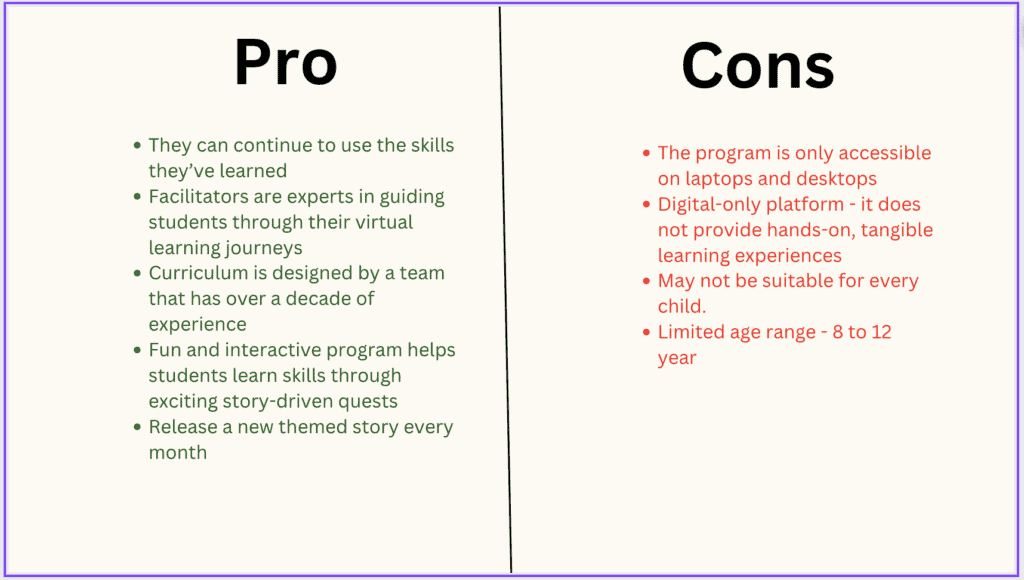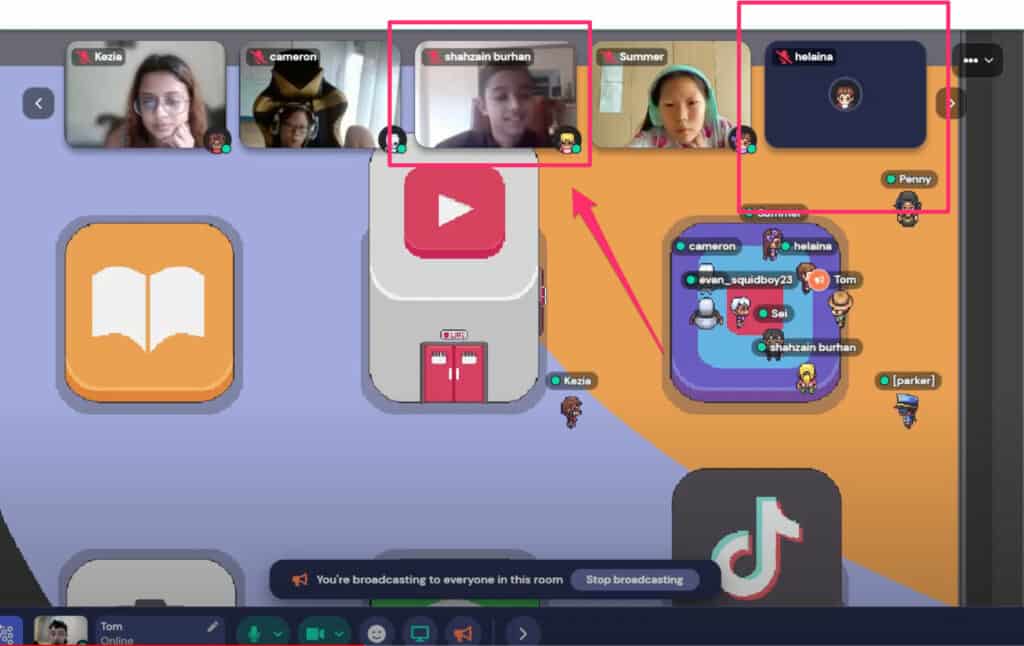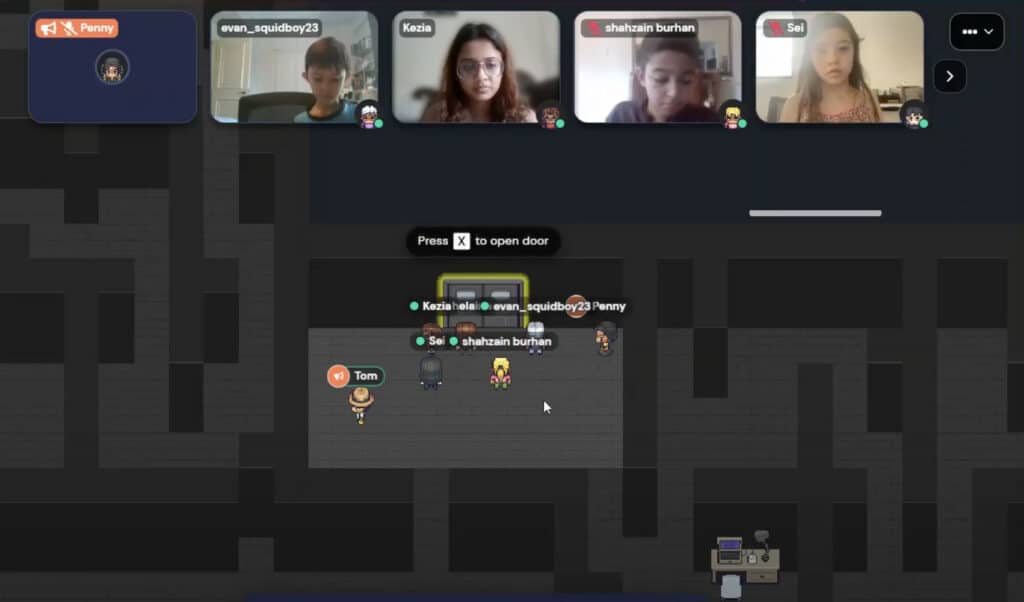What are the odds that I’d find a present that my nephew would love AND make his parents happy too?
Gifting 10-year-olds is no easy business.
I wanted to find something that would be fun for him but also give him a little unfair advantage.
I felt I hit the jackpot with Doyobi – a collaborative online adventure program that uses facilitated quests based on future literacies. The cool thing was – it was 100% online.
That meant my nephew, Shahzain would be interacting with children from all over the world, just like how I interact with colleagues and clients from all over the world.
A chance to develop his international perspective, make new friends, gain life skills and hone his communication skills?
It was worth a shot.
Here’s my unbiased review.
Btw, here’s Shahzain, isn’t he cute?

Table of Contents
- First impressions
- Why is Doyobi unique?
- How it works
- Origin story
- The good and the bad
- How to prepare your child
- Final Thoughts
For skimmers here is a quick pros and cons
My First Impressions
I read through their website and I was immediately convinced that this is the new kind of education the world needs. It’s where fun and education meet. So, I had higher expectations and Doyobi did not disappoint.
They have lessons to guide students through an exciting mystery and they have to explore the virtual worlds to find clues, debate with each other about the right answer, and even interview their suspects. Perfect for any curious kid who keeps asking questions!
Kids ages 8-12 can learn in an engaging, interactive way right from the comfort of their own homes.
We know schools don’t see how special and unique our kids are. They have to deliver the curriculum in a limited amount of time.
Doyobi is all about celebrating each child’s distinct, personal voice. The facilitators don’t tell kids what to do but they do make kids speak. Also, at some point, kids drive discussions, with guidance. Kids become leaders. Doyobi allows kids to explore, collaborate and ideate with peers from all around the world. They get to use their problem-solving skills to solve real-world challenges.
My nephew found the games fun and engaging. It sharpened his critical thinking and problem-solving capabilities. He was playing barter and trade. I was surprised that he discussed interesting economic ideas like trade-offs and opportunity cost.
Picture a world where your children can grow their critical thinking, team-work, and speaking abilities. A place where they are not just studying, but they are also having fun and communicating with other students.
That’s exactly what Doyobi’s story-driven quests offer – an immersive way to help kids practice 21st-century skills.
Why is Doyobi unique?
I have tried a couple of online education programs myself. You know how 95% of the online courses are never completed.
But Doyobi is more than a course. It’s story-led and immersive. Kids learn without knowing they are learning.
The beauty of story-driven quests is that they’re designed to be holistic. Your child is not learning in a vacuum, but is immersed in real-world scenarios. They are not sitting in a classroom, but are exploring new worlds.
At the end of the trial class I got to ask the teacher some questions. Some of the crisis simulations they’ve run for kids include the Rohingya refugee crisis, exploring the Great Garbage Patch in the Pacific Ocean and Wae Rebo, a village that was nearly torn apart when it tried to balance tourism and sustainability. Mind-blowing stuff. Stuff I know is important, but don’t know how to talk to my nephew about.
Children improve their abilities by taking part in enjoyable collaborative adventures that push their thinking boundaries. It gives them a chance to practice teamwork and communication.
Your child is not developing one skill, but developing a whole range of skills.
With an emphasis on teamwork, communication, and leadership. They are learning how to work with others, how to communicate effectively, and how to be a leader when the situation calls for it.
Let me tell you about one of their lessons.
It was about Sustainability and Climate change. The students embarked on a wild adventure on the high seas, and they had to take refuge on a mysterious island. But this wasn’t any ordinary island.
The ecosystem there was in serious trouble, and the students had to figure out how to save it.
During the course of this adventure students learned some important lessons. For example, they learned how important it is to have context when making decisions. Without context, it’s easy to misunderstand a situation and make the wrong choices.
They also learned it is important to do research to make informed decisions. How to be persuasive to convince stakeholders to take action. And perhaps most importantly, the students learned how their actions can affect the environment and, ultimately, their well-being.
How it works
In Doyobi’s metaverse, students create their own avatar. 12 students enter a virtual world. They go on exciting adventure quests to practice real-life skills.
For example, they might face a zombie apocalypse. Learn to discern real news from fake news, and decide on the best locations to set up communities. Learn to trade with other groups. More often than not the quests are filled with multiple challenges that mimic how things happen in in real life, unlike the routine, standard way of problem-solving in school. Kids have to figure out what to prioritize and how to deal, delegate and organize themselves when problems come all at once.
It occurred to me that when I first started working, it was difficult for me to deal when problems came all at once. It took me YEARS to get organized, understand how to manage my way about it and learn how to be calm and resilient. So this is the unfair advantage I love about Doyobi.
My nephew gets real practice that will benefit him in real, tangible ways. He gets to be a mess now, as a child when the consequences aren’t scary, in a fun, supportive environment where everyone is laughing and embracing their mistakes.
Origin Story

Did you know that John Tan founded Doyobi in Singapore?
Since its start the Singapore-based edtech startup has grown. It is now based in the USA, backed by venture capital.
Doyobi is passionate about designing engaging, tech-enabled learning experiences. Designed to be run in the metaverse, Doyobi quests nurture curiosity, creativity, and a growth mindset.
I believe there is a massive gap between what is being taught in schools and what children need to learn to be prepared for living in the real world. Curiosity, out of the box imagination and cultural empathy are just as important as literacy and numeracy skills
The team at Doyobi believes that children learn best when they’re having fun. That’s why the company focuses on creating games that make learning exciting and educational.
Leveraging the latest technology and incorporating real-world scenarios, Doyobi helps children learn how to think, solve problems and talk to others.
Their mission is to help kids grow into original thinkers, develop self-awareness and a sense of purpose. It teaches them to recognize the positive impact they can make in the world.
One thing that sets Doyobi apart is that their program focuses on six critical skills that will nurture kids to be outstanding, even in a world where the use of AI becomes the norm – Communication, Creativity, Collaboration, Confidence, Citizenship and Critical Thinking. Let’s talk about the good and the bad.
The Good
- Program For Life:
Doyobi is not just any other program. It is designed to stay with your child for a lifetime. This means that as they move through life, they can continue to use the skills they’ve learned from Doyobi’s educational games.
- Well-Trained Facilitators:
Doyobi’s facilitators are experts in guiding students through their virtual learning journeys. Facilitators guide students, give support, and give personalized feedback.
- Curriculum
Doyobi’s curriculum is designed by a team that has over a decade of experience creating interactive learning experiences for kids. The curriculum covers concepts that are immediately relevant, such as financial literacy, digital and media literacy, environmental literacy, to name a few.
- Interactive Journey Games:
Doyobi’s fun and interactive program helps students learn skills through exciting story-driven quests. Students journey together with their peers. They solve problems and face challenges based on real-world issues. Through this experience, students develop real-life skills that traditional school settings may not offer.
- Monthly Themed Adventures:
Doyobi releases a new themed story every month. Students are engaged and excited about learning. There is always something new for students to explore, discover, and learn.
The Bad
- Limited portability:
The program is only accessible on laptops and desktops, it cannot be used on mobile phones or tablets (unless it has an attached keyboard and mouse). This can be a limitation for families who prefer to use mobile devices for learning, or to use the program on the go.
- Digital-only platform:
Doyobi is a digital-only program, which means that it does not provide hands-on, tangible learning experiences. While the program offers interactive simulations, some children may find it difficult to learn solely through a screen.
- Not suitable for all children:
Every child has their unique learning style, and Doyobi may not be the best fit for every child. Some children may prefer more traditional learning methods, while others may not enjoy the game-like format of the program.
- Limited age range:
Another disadvantage is that the program is only designed for kids between the ages of 8 – 12.
How to Prepare your child
To join an online class, students need a computer or laptop and a good internet connection. Since the lessons use many tabs and require some typing, tablets are not ideal. You don’t need a fancy VR headset.
If your child is using a desktop, it’s important to have a webcam so that students can see each other and interact during class. The facilitators also provide feedback on their participation and speaking skills.
Final Thoughts
Over the past few weeks, I watched as my nephew’s English skills began to improve. He started speaking more confidently and his vocabulary grew. I could see the excitement in his eyes as he played new themed adventures.
It generally takes 3 – 6 months to see results. I noticed he was able to explain critical concepts that children his age generally are not able to express.
The best part was that he didn’t even realize he was learning.
By creating experiences that are immersive, Doyobi is able to make learning a natural part of his life. It is now ingrained in his thinking and behavior. This has made him a more effective problem solver and strategic thinker.
Overall, Doyobi is a fantastic way to teach him essential skills while having fun in the virtual world. It helped him build his confidence and self-belief.
What I love about Doyobi is that it’s not about teaching academic skills. Its approach to education is unique. It focuses on developing the whole child, including their social-emotional learning and character development.
By nurturing self-awareness and a sense of purpose,It helped him become confident. They did this by creating a virtual world where he could learn and connect with others from all around the globe. By learning about different people and places, he was able to broaden his perspective. He was able to develop empathy and understanding for others.
If you want your child to learn essential skills in a fun and unique way, I highly recommend Doyobi.






